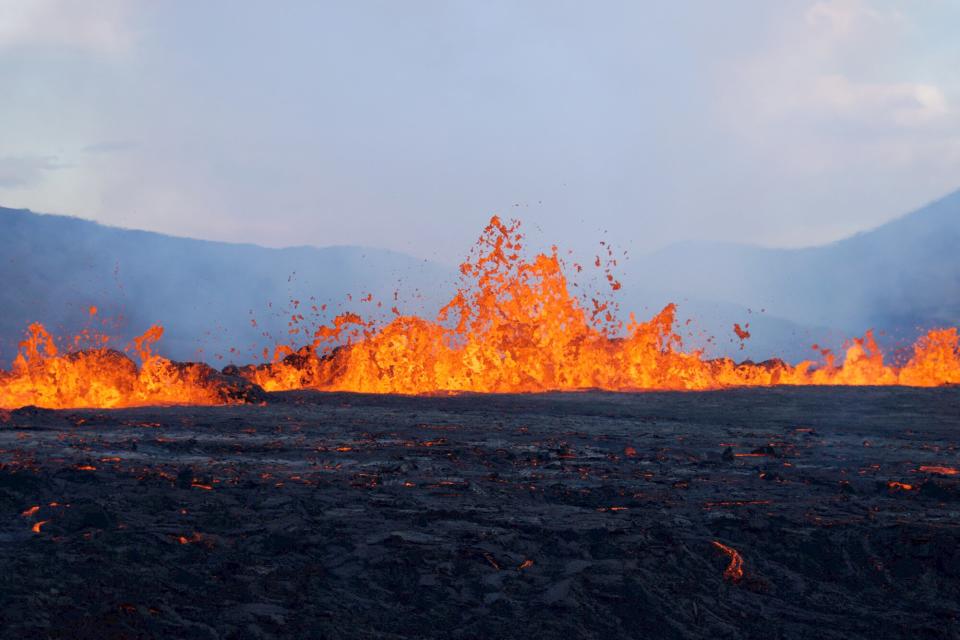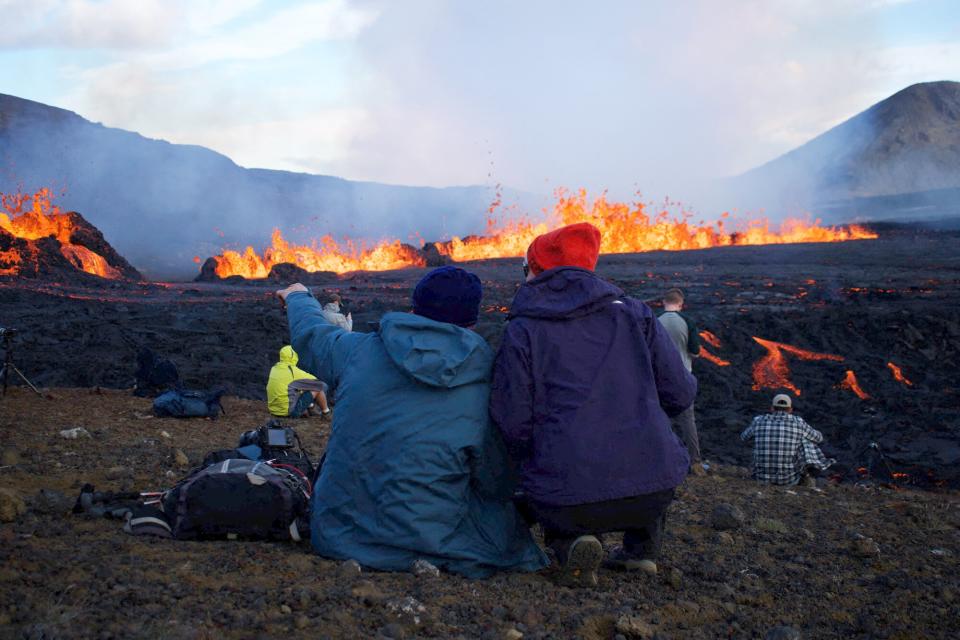Volcano Erupts in Iceland Near Capital Following Series of Earthquakes

After days of earthquakes in the area, a volcano erupted near Iceland's main airport Wednesday, but it is currently not a threat to air travel, according to officials.
Lava began flowing around 1:18 p.m. local time from a ground fissure near the town of Grindavik on the Reykjanes peninsula, in the southwest part of the country, according to a statement from the Foreign Ministry.
"The eruption follows intense seismic activity over the past few days. It is considered to be relatively small and due to its location, there is low threat to populated areas or critical infrastructure," according to the Foreign Ministry.
The volcano is close to Iceland's Keflavik Airport, according to The Washington Post, but the Foreign Ministry said there have been no disruptions to flights inbound or outbound, and "international flight corridors remain open."

JEREMIE RICHARD/AFP via Getty
RELATED: Volcano Erupts Near Iceland's Capital Reykjavik Following Weeks of Unprecedented Earthquakes
In addition, the eruption is near the Fagradalsfjall mountain, about 20 miles southwest of the capital Reykjavik, and the site of an eruption last year, according to Iceland officials.
Last March, the volcanic eruption lasted six months, the Foreign Ministry said.

JEREMIE RICHARD/AFP via Getty
The colorful scene is drawing curious onlookers and drones, despite authorities warning against visiting the site of the eruption.
"I just made it to the volcano … my mind is completely blown, it's crazy," an onlooker told the Associated Press. "The last thing that I would have imagined this morning when I woke up would be to be standing and looking at this … it is so beautiful."
Authorities, meanwhile, say they are monitoring the situation.
Never miss a story — sign up for PEOPLE's free daily newsletter to stay up-to-date on the best of what PEOPLE has to offer, from juicy celebrity news to compelling human-interest stories.
"We've been expecting an eruption somewhere in this area since the series of earthquakes started last weekend. What we know so far is that the eruption does not pose any risk to populated areas or critical infrastructure. We will of course continue to monitor the situation closely and now we also benefit from the experience gained from last year's eruption," Prime Minister Katrín Jakobsdóttir said in a statement.
RELATED: Iceland Has Experienced More Than 18,000 Earthquakes in the Last Week Signaling Potential Eruption
The eruption is classified as a fissure eruption and "does not usually result in large explosions or significant production of ash dispersed into the stratosphere," the Foreign Ministry said.
Iceland is known as a volcanic "hot spot," with eruptions averaging every four to five years, according to the AP.
In 2010, the Eyjafjallajokull volcano disrupted air travel between Europe and North America, due to concerns of ash impacting jet engines, grounding 100,000 flights and stranding millions of passengers.

